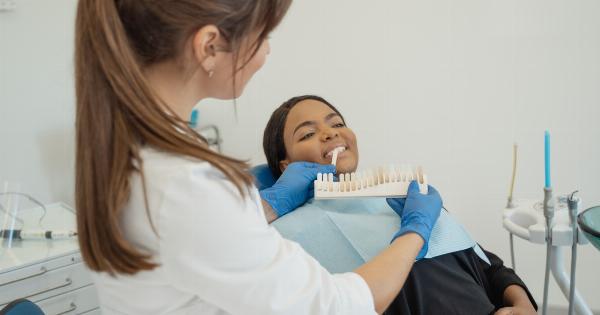Prostatitis is a common condition that affects the prostate gland, which is a small gland located between the bladder and the base of the penis.
This gland is responsible for producing seminal fluid, which nourishes and transports sperm during ejaculation.
Prostatitis occurs when the prostate gland becomes inflamed or infected. There are two main types of prostatitis: acute prostatitis and chronic prostatitis.
Symptoms of Acute Prostatitis
Acute prostatitis is a sudden and severe infection of the prostate gland, which requires immediate medical attention. The symptoms of acute prostatitis may include:.
- Pain or discomfort in the pelvic area
- Fever and chills
- Difficulty urinating
- Burning or pain during urination
- Frequent urge to urinate
- Blood in the urine
- Painful ejaculation
If left untreated, acute prostatitis can lead to serious complications, such as sepsis, kidney damage, and infertility. Therefore, it is important to seek medical attention if you experience any of these symptoms.
Symptoms of Chronic Prostatitis
Chronic prostatitis is a long-term inflammation of the prostate gland, which may be caused by a bacterial infection or by noninfectious factors, such as stress, trauma, or urinary tract disorders. The symptoms of chronic prostatitis may include:.
- Dull or aching pain in the lower back, groin, or perineum
- Frequent urination, especially at night
- Urgency to urinate or difficulty starting and stopping urine flow
- Burning or pain during urination
- Title”>Frequent urinary tract infections or bladder infections
- Painful ejaculation
- Decreased libido or impotence
Chronic prostatitis is a common condition that affects men of all ages, but it is more common in men over 50 years old.
The exact cause of chronic prostatitis is unknown, but it is thought to be related to a combination of bacterial and nonbacterial factors.
Treatment of Prostatitis
The treatment of prostatitis may depend on the type and severity of the condition. In cases of acute prostatitis, antibiotics may be prescribed to clear the infection, along with pain relief medication to manage the symptoms.
In severe cases, hospitalization may be required.
In cases of chronic prostatitis, the treatment may focus on managing the symptoms and improving the quality of life.
This may include pain relief medication, alpha-blockers to relax the muscles of the bladder and prostate, and physical therapy to reduce muscle tension and improve urinary flow. In some cases, surgery may be necessary to remove the inflamed or infected tissue.
Prevention of Prostatitis
There are several measures that may help prevent the development of prostatitis, including:.
- Maintaining good hygiene, especially in the genital area
- Practicing safe sex, using condoms or other protective measures
- Emptying the bladder frequently and completely
- Drinking plenty of fluids to flush bacteria out of the urinary tract
- Avoiding prolonged sitting, especially on hard surfaces
- Reducing stress and anxiety through relaxation techniques or counseling
Overall, prostatitis is a treatable condition that can be managed effectively with the right medical care and lifestyle modifications.
If you experience any symptoms of prostatitis, it is important to seek medical attention promptly to avoid complications.





























